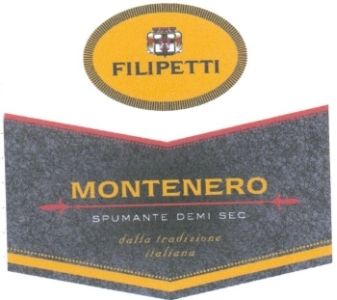CLASS 46
Now in its twelfth year, Class 46 is dedicated to European trade mark law and practice. This weblog is written by a team of enthusiasts who want to spread the word and share their thoughts with others.
Want to receive Class 46 by email?
Click here subscribe for free.
Click here subscribe for free.
Who we all are...
MONDAY, 9 APRIL 2012
Poland: letters of consent and public policy
 The Polish Patent Office in its decision of 29 January 2010 case no. DT-581/08 refused to grant the right of protection for the word-figurative trade mark FILIPETTI MONTENERO SPUMANTE DEMI SEC DALLA TRADIZIONE ITALIANA Z-298140 that was applied for by Domain Menada Sp. z o.o. for goods in Class 33. The PPO decided that this trade mark is similar to the word trade marks FILIPETTI R-101614 and R-140718 owned by Belvedere S.A. Domain Menada argued that it is a part of the Belvedere Group, and provided a letter of consent. Domain Menada filed a complaint against this decision but the Voivodeship Administrative Court in its judgment of of 21 June 2010 case file VI SA/Wa 710/10 dismissed it. See "Poland: membership in capital group is not enough". Domain Menada filed a cassation complaint.
The Polish Patent Office in its decision of 29 January 2010 case no. DT-581/08 refused to grant the right of protection for the word-figurative trade mark FILIPETTI MONTENERO SPUMANTE DEMI SEC DALLA TRADIZIONE ITALIANA Z-298140 that was applied for by Domain Menada Sp. z o.o. for goods in Class 33. The PPO decided that this trade mark is similar to the word trade marks FILIPETTI R-101614 and R-140718 owned by Belvedere S.A. Domain Menada argued that it is a part of the Belvedere Group, and provided a letter of consent. Domain Menada filed a complaint against this decision but the Voivodeship Administrative Court in its judgment of of 21 June 2010 case file VI SA/Wa 710/10 dismissed it. See "Poland: membership in capital group is not enough". Domain Menada filed a cassation complaint.
The Supreme Administrative Court in its judgment of 8 December 2011 case file II GSK 1261/10 ruled that the letter of consent was not binding and the PPO examined its effects in different aspects, based on gathered evidence, and it found that the letter of consent is not an exemption to grounds for refusing trade mark protection. The SAC stressed that the system of registration of trade marks under the Polish Industrial Property Law is to guarantee the protection of the interests of businesses and consumers. Under the present regulations, the Polish Patent Office may refuse to register a trade mark, despite the agreement between the professional entities that are active in business, due to the risk of misleading and confusion of consumers as to the origin of the goods from a particular entrepreneur. In this sense, the mere will of particular businesses does not directly create and shape the public policy. The PPO is a public authority that takes a decision on the registration of a trade mark, taking into account ex officio circumstances specified in the IPL. The PPO is therefore bound by the provisions of generally applicable laws, and these - as it was indicated above - protect the position and the consumer's interest. Posted by: Tomasz Rychlicki @ 22.03
Tags: letter of consent, Polish Act on Industrial Property Law, Polish Act on Proceedings Before Administrative Courts, Polish law, Polish Supreme Administrative Court, trade mark refusal, trademark law, Voivodeship Administrative Court,


 Sharing on Social Media? Use the link below...
Sharing on Social Media? Use the link below...
Perm-A-Link: https://www.marques.org/blogs/class46?XID=BHA2792
Poland: letters of consent and public policy
The Supreme Administrative Court in its judgment of 8 December 2011 case file II GSK 1261/10 ruled that the letter of consent was not binding and the PPO examined its effects in different aspects, based on gathered evidence, and it found that the letter of consent is not an exemption to grounds for refusing trade mark protection. The SAC stressed that the system of registration of trade marks under the Polish Industrial Property Law is to guarantee the protection of the interests of businesses and consumers. Under the present regulations, the Polish Patent Office may refuse to register a trade mark, despite the agreement between the professional entities that are active in business, due to the risk of misleading and confusion of consumers as to the origin of the goods from a particular entrepreneur. In this sense, the mere will of particular businesses does not directly create and shape the public policy. The PPO is a public authority that takes a decision on the registration of a trade mark, taking into account ex officio circumstances specified in the IPL. The PPO is therefore bound by the provisions of generally applicable laws, and these - as it was indicated above - protect the position and the consumer's interest. Posted by: Tomasz Rychlicki @ 22.03
Tags: letter of consent, Polish Act on Industrial Property Law, Polish Act on Proceedings Before Administrative Courts, Polish law, Polish Supreme Administrative Court, trade mark refusal, trademark law, Voivodeship Administrative Court,


 Sharing on Social Media? Use the link below...
Sharing on Social Media? Use the link below...Perm-A-Link: https://www.marques.org/blogs/class46?XID=BHA2792
Reader Comments: 0
Post a Comment
MARQUES does not guarantee the accuracy of the information in this blog. The views are those of the individual contributors and do not necessarily reflect those of MARQUES. Seek professional advice before action on any information included here.
The Class 46 Archive

